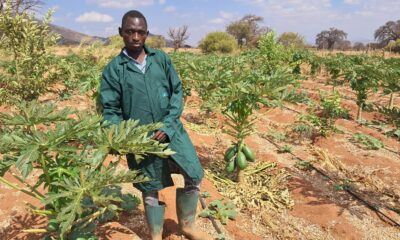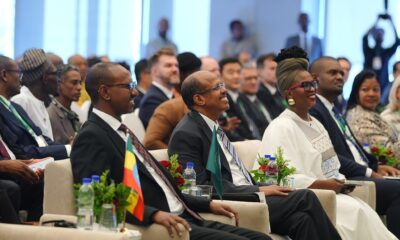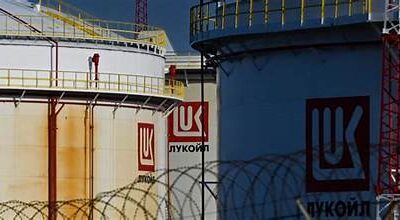Political Issues
The Rebirth Of Social Contract In Kogi -By Raji Usman


Governor Idris Wada of Kogi State
One key justification for the existence of government in any society is the provision of bankable social welfare for the wellbeing of the citizenry. Provision of essential infrastructure such as good road network, potable water, healthcare facilities and other basic social amenities are seen as enablers of social welfare programmes of the government.
At a time when these very core essence of the social contract between the government and the governed is almost taken for granted by those in positions of authority, it is gratifying that somewhere around the confluence of the Rivers Niger and Benue, something different is happening.
Continuity in government
The administration of Captain Idris Wada of Kogi State had set machineries in motion to address the worrisome state of infrastructural decay in the state. On assumption of office in January 2012, Governor Wada had initiated a well-rounded approach to the development of infrastructure in the state. One of the highlights of the Wada roadmap to social welfare, which is indeed novel in our clime, is the decision of the Kogi State governor to ensure the completion of all projects embarked upon by the previous administrations in the state.
At a ceremony to mark two years of his administration in Lokoja in January 2014, Governor Wada told a large gathering of leaders and stakeholders drawn from different parts of the state that he was committed to the completion of all on-going projects initiated by his predecessor because of his belief that government is a continuum. He noted that it amounts to disservice to the people for any government to abandon laudable projects by a previous administration in the name of running a new course or setting a new agenda even where such projects have the potential to improve the lives of the people.
Some of the projects inherited and completed by the Wada administration which have today brought greater relief to the people of Kogi State include the resuscitation of the Greater Lokoja Water Project which was submerged by the 2012 flood disaster and several road projects in different parts of the state.
Road construction
There are up to 58 road projects of over 800 kilometers so far completed by the administration. These include roads linking Dekina-Olowa-Abocho-Ogbabede-Agada-Ajogwomi; Idah-Onyedega, Shintaku-Odugbo-Mosum, Anyigba-Abejukolo, Ankpa township road, Ofugo, Ejule-Okele-Ochadamu-Ajaokuta; and the Ageva-Ogori-Magongo, Ogaminana-Obangede-Okaito-Kabba Junction, Ihima-Obangede, Ebiya-Patesi-Badoko as well as roads in Iyara-Odokoro, Ayere-Ogidi, Kabba-Bunu, Mopa, Isanlu, and Idioro-Ayede-Ogale all across the three senatorial districts of the state.
In Lokoja the state capital, apart from the Felele-Agbaja road, Hassan Katsina-Mount Patti road, Zone 8 Roundabout-House of Assembly-Okene Junction road, the Lokoja township road is undergoing complete reconstruction with drainage channels now being constructed for the first time since the state was created 24 years ago. There is also the 16 Kilometer Ganaja-Otokiti byepass which is intended to divert vehicular traffic out of the ever-busy Lokoja township road and also create a new corridor for urban development along that axis of the state capital.
Addressing journalists at a media parley in Lokoja a few weeks ago, Governor Wada stated that the administration has reviewed the model for execution of infrastructural development projects in the state and has set a new standard for best practices especially in road construction. This he explained is partly responsible for the degree of work done so far especially on the Lokoja Township road and Ganaja-Otokiti bye pass for which the Governor insists that drainages must be completed before the actual work on paving and asphalting of the roads.
Lokoja mega terminal
Another critical component of the comprehensive urban renewal programme of the Wada administration is the construction of the Lokoja Mega Terminal whose civil works is now over 80% completed. According to the state commissioner for Transport, Abdulrahaman Wuya, “the Lokoja Mega Terminal has the capacity to accommodate over 250 vehicles and over 5000 passengers at a time. It has a clinic, an automobile workshop, a passengers’ lounge, eatery, a bank, police post, offices and a shopping complex; and accommodation facility for passengers and drivers travelling through the state”.
The Lokoja Metro Bus Transport which celebrated one year of uninterrupted operation a few weeks ago is another plus for the Wada administration. The overwhelming success of this initiative informed the decision of the government to extend this social service to other parts of the state.
Health facilities
In pursuit of an aggressive health sector reforms in the state, the government of Capt. Wada embarked on massive renovation of five zonal hospitals in Ankpa, Kabba, Okene, Idah and Dekina. The government’s free health programme across the 21 local government areas has been a success with over two hundred thousand people reported to have received medical care including minor surgeries so far across the state. Apart from the progress made in the establishment of cottage hospitals in Icheke, Afugo and Ihima, the Wada administration has also taken keen interest in secondary and tertiary health institutions.
The government is currently building a state-of-the-art diagnostic and imagery centre at the specialist hospital in Lokoja while work is at advanced stage at the Kogi State University Teaching Hospital, Anyigba. The School of Nursing Obangede has also witnessed renovations as well as building of a modern ICT centre and administrative block. Part of the proceeds from the Kogi Bond projects has been invested in the establishment of a General Hospital in Odu-Ogboyaga, Dekina local government area.
To demonstrate that his administration is conscious of the feelings of the people, Governor Wada recently reversed the downgrading of specialist hospitals in Kabba and Obangede and approved the restoration of their full status which the state ministry of health was directed to implement to the latter.
–Usman, a social commentator, wrote in from Lokoja










